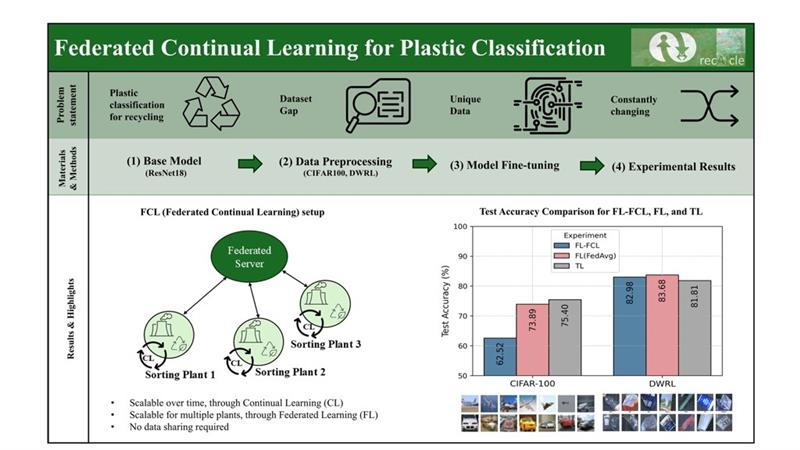Plastic waste classification plays a crucial role in enabling a circular economy. However, conventional solutions often depend on centralized data, posing significant challenges in terms of scalability and data privacy. Addressing this issue, researchers at Pro²Future have developed a federated continual learning (FCL) approach that enables collaborative AI training without the need to share raw data between facilities.
Decentralized learning for Sustainable Waste Management
In the scope of this research, a decentralized framework for vision-based plastic classification was designed and tested on real-world data from recycling plants. The system leverages federated learning to allow multiple facilities to contribute to the training process of a shared AI model without compromising sensitive data.
This approach is particularly relevant for industrial applications, where real-time performance and data protection are essential. The method supports continual model improvement as new data becomes available, while preserving privacy and maintaining operational autonomy at each site.
Strong performance demonstrated in real-world conditions
The developed system achieved an accuracy of 83.7% across six different types of plastic waste, confirming the viability of federated AI in demanding, real-life industrial settings. These results demonstrate not only the technical robustness of the approach but also its potential for scalable deployment in recycling processes.
Peer-Reviewed Publication
This research has been published in the scientific journal Waste Management (Elsevier) under the title:
“Federated continual learning for vision-based plastic classification in recycling”
The full article is available https://doi.org/10.1016/j.wasman.2025.114976
The study was authored by Somayeh Shami, Julian Aberger, Jesús Pestana, Benedikt Häcker, Renato Sarc and Michael Krisper.


